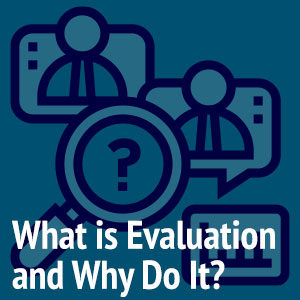
The current health crisis is compelling many non-profits to rethink how they do business. Many must consider how to best serve their stakeholders with new and perhaps untested, means. Among questions that many non-profits must now ask themselves: How do we continue to reach program participants and service recipients? How do we change/adjust our programing so that it reaches existing and new service recipients? How do we maximize our value while ensuring the safety of staff and clients? Are there new, unanticipated opportunities to serve program participants?
New conditions require new strategies. While the majority of non-profits’ attention will necessarily be focused on serving the needs of those they seek to assist, non-profit leaders will benefit from paying attention to which strategies work, and which adaptations work better than others.
In order to investigate the effectiveness of new programmatic responses, non-profits will benefit from conducting evaluation research that gathers data about the effects and the effectiveness of new (and continuing) interventions. Formative evaluation is one such means for discovering what works under new conditions.
The goal of formative evaluations is to gather information that can help program designers, managers, and implementers address challenges to the program’s effectiveness. In its paper “Different Types of Evaluation” the CDC notes that formative evaluations are implemented “During the development of a new program (or) when an existing program is being modified or is being used in a new setting or with a new population.” Formative evaluation allows for modifications to be made to the plan before full implementation begins, and helps to maximize the likelihood that the program will succeed.” “Formative evaluations stress engagement with stakeholders when the intervention is being developed and as it is being implemented, to identify when it is not being delivered as planned or not having the intended effects, and to modify the intervention accordingly.” See “Formative Evaluation: Fostering Real-Time Adaptations and Refinements to Improve the Effectiveness of Patient-Centered Medical Home Interventions”.
While there are many potential formative evaluation questions, the core of these consists of gathering information that answers:
- Which features of a program or initiative are working and which aren’t working so well?
- Are there identifiable obstacles, or design features, that “get in the way” of the program working well?
- Which components of the program do program participants say could be strengthened?
- Which elements of the program do participants find most beneficial, and which least beneficial?
Typically, formative evaluations are used to provide feedback in a timely way, so that the functioning of the program can be modified or adjusted, and the goals of the program better achieved. Brad Rose Consulting has conducted dozens of formative evaluations, each of which has helped program managers to understand ways that their program or initiative can be refined, and program participants better served. For the foreseeable future, non-profits are likely to be called upon to offer ever greater levels of services. Program evaluation can help non-profits to maximize their effectiveness in ever more challenging times.
Resources:





